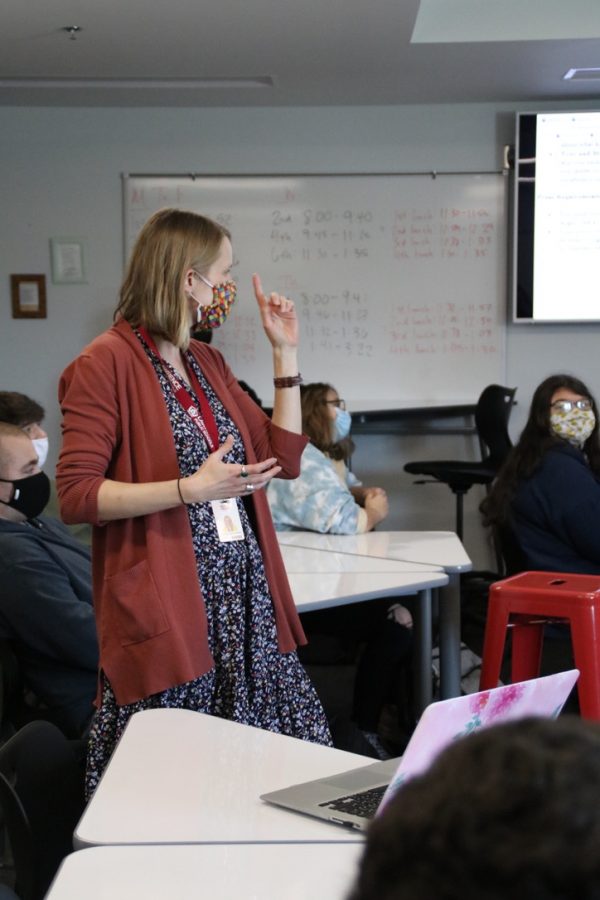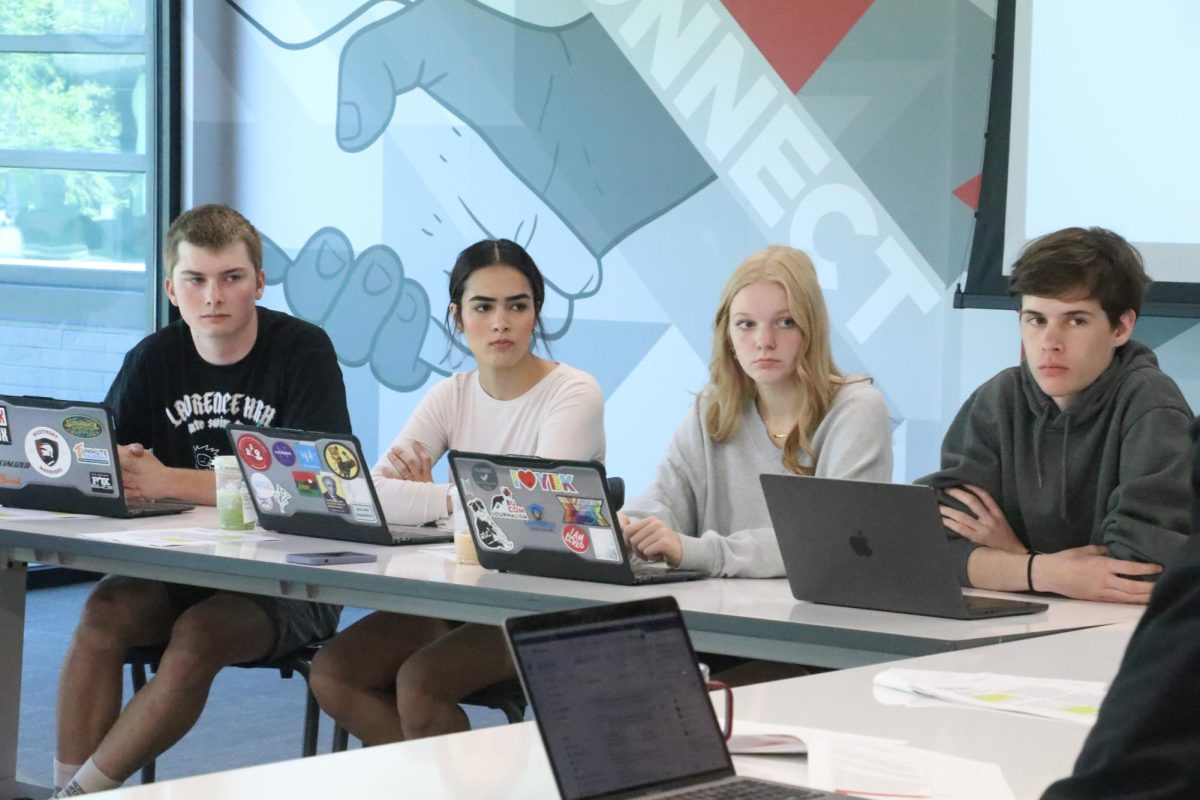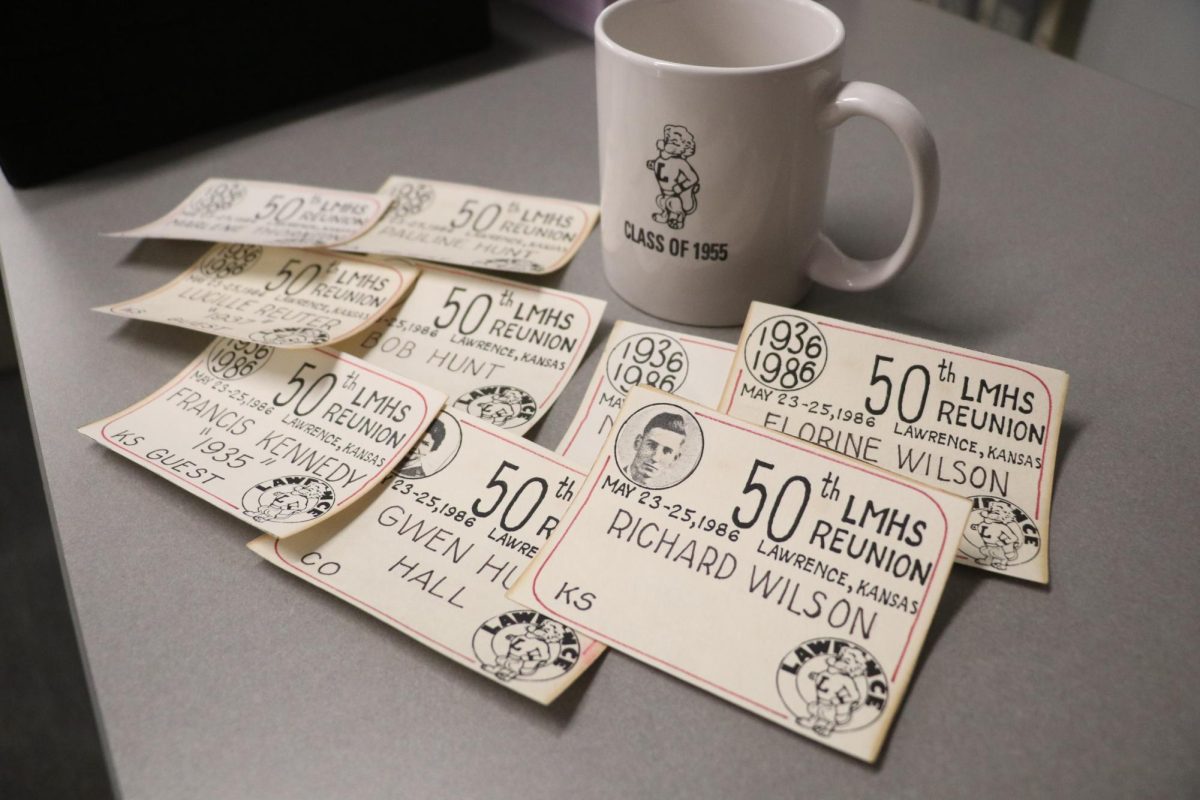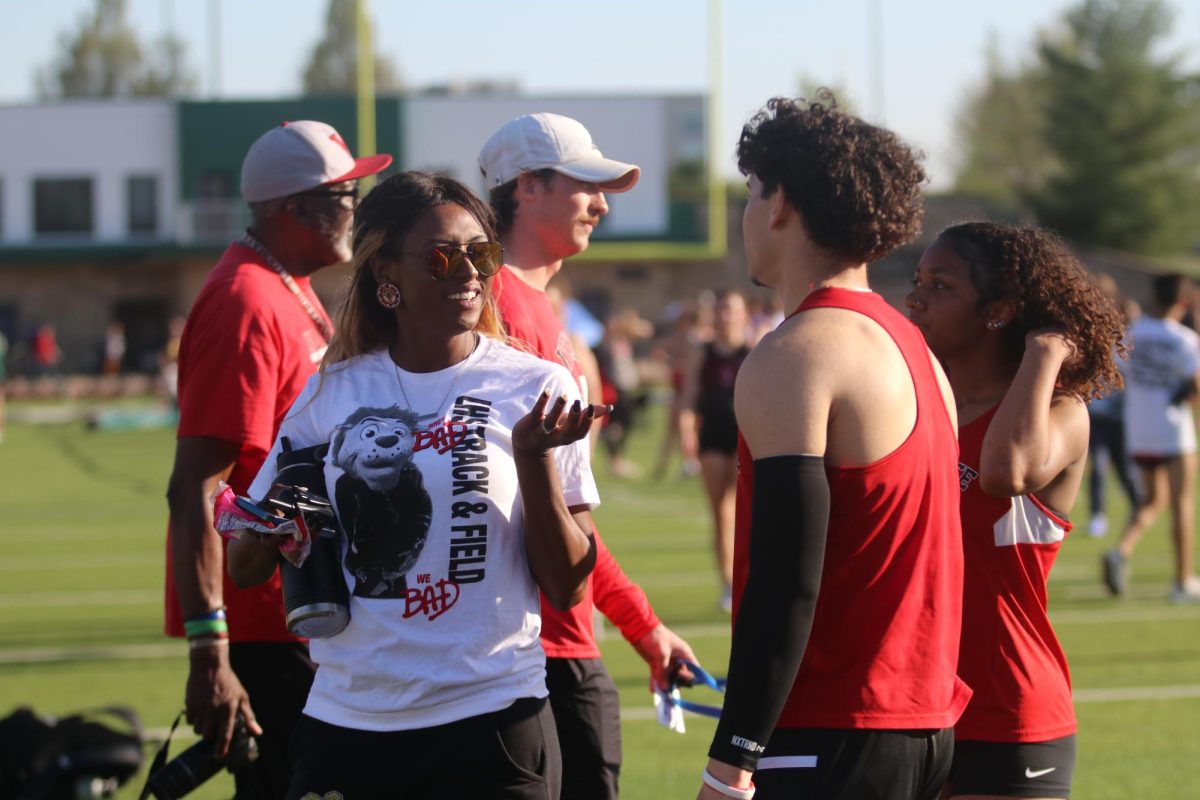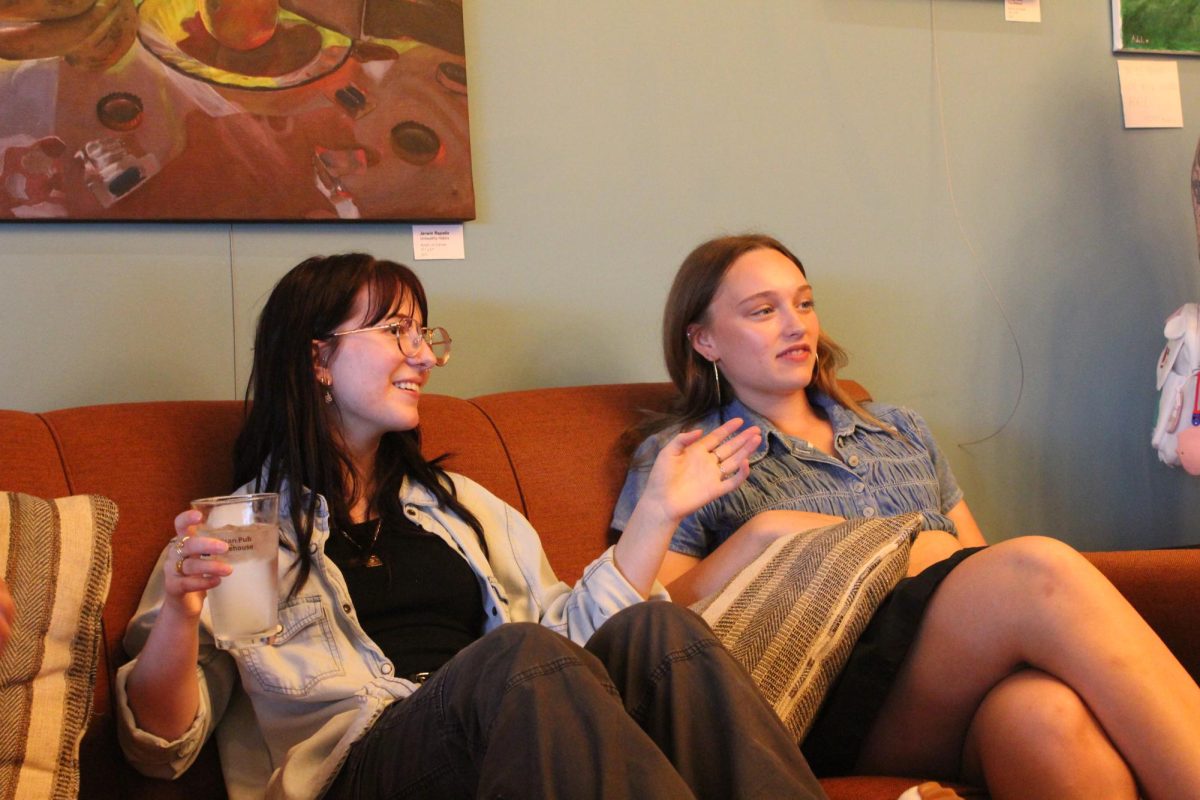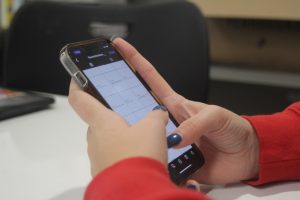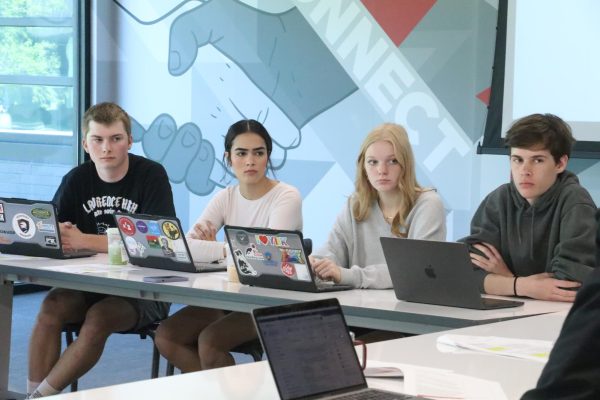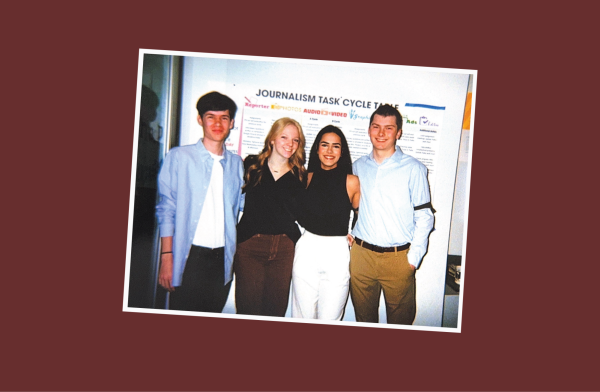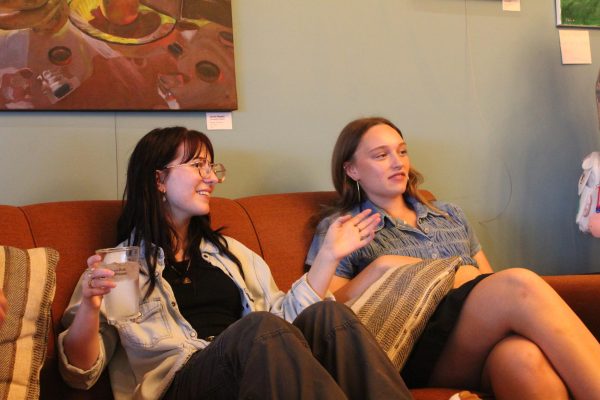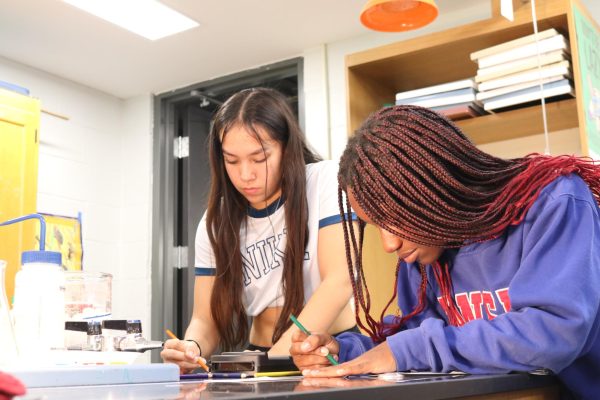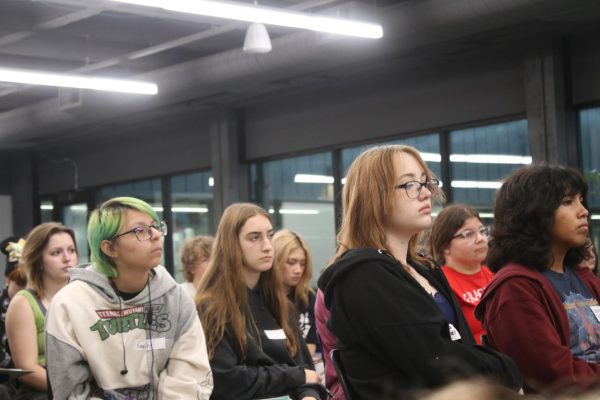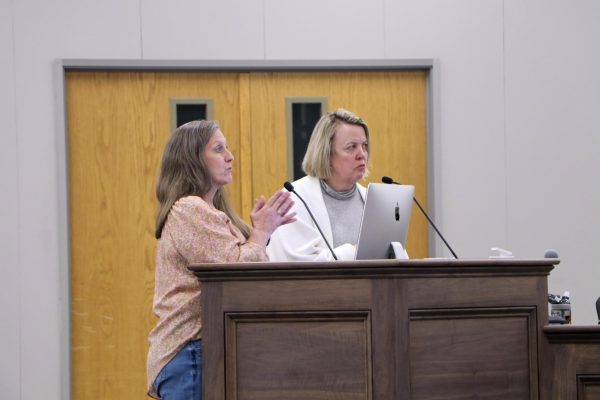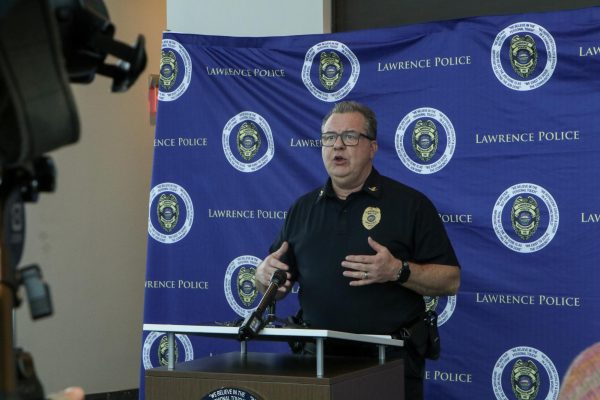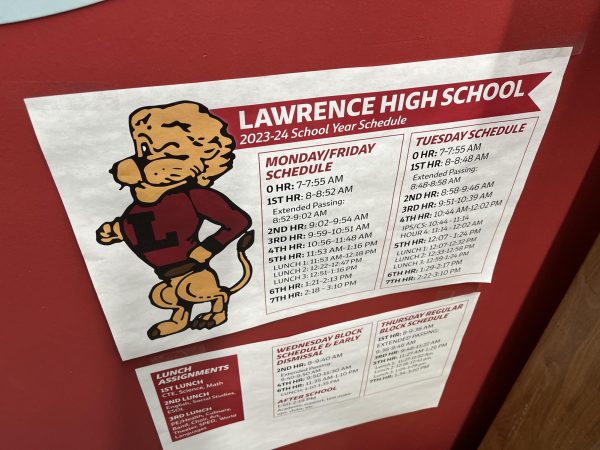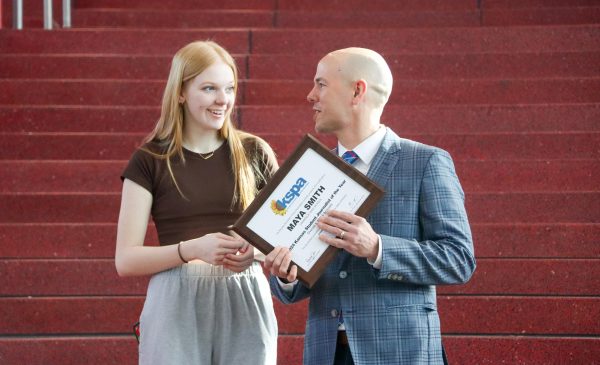New teaching methods discovered during online learning still being utilized by teachers
Online lessons and curriculum changes that were forced due to COVID-19 are still being implemented by teachers who were fond of the new methods
English teacher Melissa Johnson speaks to her class on Nov. 11.
November 10, 2021
Over the past decade there hasn’t been an event that has fundamentally shifted the lives of so many people in the way that COVID-19 has. In an already difficult field, teachers were thrown into the deep end and forced to continually create engaging scenarios for students while simultaneously adapting to the hardships that came with the pandemic.
Individual teachers addressed this issue in many different ways but all gained a new perspective that has changed the way that they carry themselves within a schooling environment.
History teacher Rosemary Homeyer noted that last year posed many challenges because of struggles with student engagement.
“It was hard because if you had students who were just blank grey screens, no one really wants to talk to just a grey screen,” Homeyer said. “It was very hard to focus on both, and you can’t, it’s impossible to do two things really well at once so I focused on those I could see.”
This forced her to find strategies to solve those problems. What worked for her were tools that could make the curriculum a bit more digestible for many students
“Edpuzzle is a really good one and I also love Peardeck because they do a lot and I don’t think everyone knows all the options they have,” Homeyer said. “I’ve essentially typed up 2 textbooks from Modern World History and U.S. History into Peardeck slides and use those for lectures.”
These programs have succeeded in reaching her students and keeping them interested even into this year, where students have returned to fully in-person learning.
“I think for most students being in person has increased engagement. I did an Edpuzzle on Dia De Los Muertos where they were coloring the slides and so everyone had a different skull to color. But then yesterday we did a mind map for an assessment and people were drawing and talking to each other and moving around,” Homeyer said. “I think it depends on what you do. If you do the same things every day it’s just not gonna work.”
Some teachers had troubles that were rooted in the curriculum required to teach their class. Zach Saltz is one of those teachers. Being the video teacher created a lot of obstacles to overcome for him and his students.
“I know a lot of teachers had it rough but video specifically was really tough because to make a good video you have to work collaboratively with other people and with the right equipment. Students didn’t have access to things like cameras so they had to use their own resources at their house and a lot of people had obstacles that made it hard to film and it really changed every aspect of the way I teach,” Saltz said.
He found that the best strategy was to give students the ability to work while still being a helpful, yet distanced, supporter.
“I hated the idea that the students had to be seated in front of the screen for 50 minutes in my class so what I would do is use the first 5-10 minutes to explain what we were doing today and then give them the rest of the hour to work on an activity,” Saltz said. “If they got it done great they could take a break if not do the best you can but if you need help I was there.”
Saltz uses his reflections on last year to frame this year with optimism.
“It was a painful year and I look back and realize I made a lot of mistakes. A lot of teachers made mistakes, but I’m thankful we got through it and it makes me appreciate and realize that the problems this year are nowhere near the scope they were last year,” Saltz said.
Last year’s struggles created a wide range of issues to overcome, but for some, it helped spur important reflection that inevitably bettered their classroom environment. Melissa Johnson is an English teacher who used last year to experiment with some new changes to her teaching strategies.
“I decided that quizzes didn’t make much sense anymore which I had been struggling with for a while actually. I had to think more meaningfully about what I was doing so I came up with this strategy where instead of answering a few questions that were really easy to look up, everyone had to write a discussion question in the chat on Webex and then pick their favorite to write about,” Johnson said. “That was much harder to fake and also gave some more depth to our conversations. This year even though we are in person I’m still doing that. It’s also a lot easier to tell if someone is struggling with the material or if someone is looking stuff up I can catch it much quicker.”
Johnson utilized this new discussion-focused curriculum to inspire students to stay engaged and interact with others during a very separated time.
“No one in the room could really be on Webex because then the sound would go crazy. Some days during discussion I would have my computer and run around the room if someone was about to talk so they could engage with the people online,” Johnson said. “That was nuts and there’s no way I could’ve maintained that for years and years. I just wanted to do anything it took to make sure that things felt normal or more joyful even.”
The goal of this strategy was to achieve a similar level of engagement while still relying on the teaching styles she feels most comfortable with.
“I tried to be interesting with what we were doing. When we discuss, I open it up to anyone to start and we just discuss what they want to talk about,” Johnson said.
Johnson has noticed that some of the strategies used last year have continued to show increasing success
“I still use the chat feature via class comments on Google Classroom and so our class discussions are now graded on interaction and I don’t feel as bad because the shy people can just make a comment on Classroom. That makes my classroom feel a lot more inclusive now which is good,” Johnson said.
Despite the copious difficulties of last year, Johnson thinks that some of the positives can rival the negative aspects.
“Some people called last year a waste but I don’t think that’s true at all,” Johnson said. “I am glad that we aren’t doing that again but I don’t think it was a waste. It made me very grateful for what we have and I think it made me reflect in ways I may not have otherwise.”



